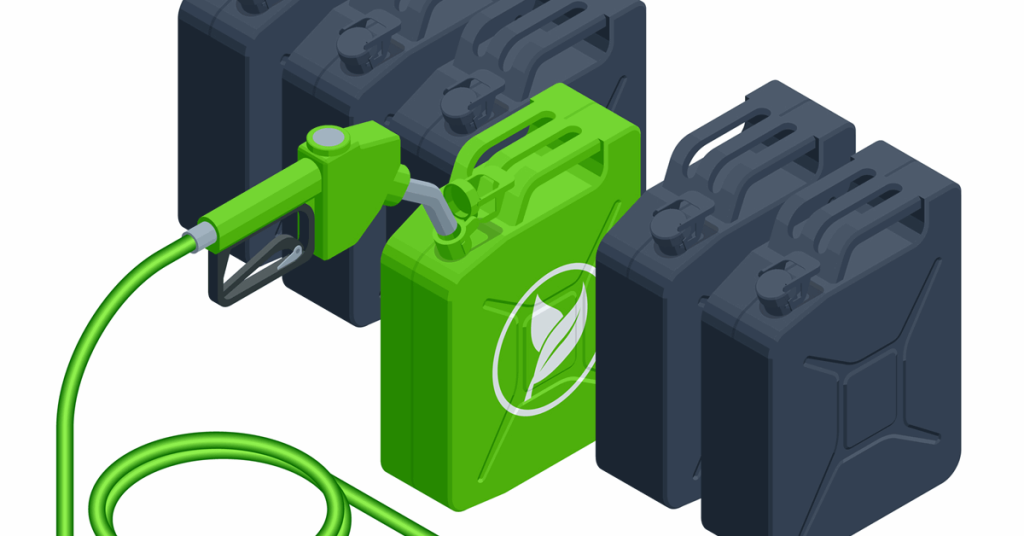Eni SpA has signed a 500-million-euro ($585.6 million) financing contract with the European Investment Bank (EIB) to support the conversion of Eni’s Livorno refinery in Tuscany into a biorefinery.
Eni’s project involves the construction of new plants to produce hydrogenated biofuels at the Livorno refinery site, including a biogenic pre-treatment unit and a plant with the capacity to produce 500 000 metric tons per year of hydrogenated vegetable oil (HVO), the company said in a news release.
Enilive, Eni’s company focused on sustainable mobility, will use its proprietary Ecofining technology to produce HVO, a biofuel made from renewable raw materials such as used cooking oil and agrifood waste, according to the release.
The Livorno biorefinery will be able to treat different types of biogenic charges, mainly waste and residues of plant origin, to produce HVO diesel, HVO naphtha and bio-LPG, Eni said, adding that it will be its third biorefinery in the region.
The conversion of the Livorno site is in line with Enilive’s strategy to increase the production of biofuels in response to growing demand in Europe and Italy, in order to meet both emission reduction targets under RED III (Renewable Energy Directive) and the obligations to release pure biofuels for use as defined by Italian legislation. HVO biofuels aim to reduce transport sector emissions generated not only on roads, but also by air traffic, maritime and rail transport calculated along the entire value chain, according to the release.
Eni said there is a possibility in the future to modify the layout of the plant and have the flexibility to also produce sustainable aviation fuel (SAF), which is a key element of efforts to decarbonize aviation. This gives flexibility to the investment and brings it up to speed with the environmental priorities of the European Union, broadening its potential impact, the company stated.
EIB Vice-President Gelsomina Vigliotti said, “The EIB financing is key to delivering a project of high environmental, technological and strategic value, helping to promote the decarbonization of the transport sector. This is a concrete example of how industrial innovation can accelerate the path towards climate neutrality, while generating sustainable value for regions”.
Eni CEO Claudio Descalzi said, “The agreement with the EIB confirms Eni’s concrete and high-quality commitment in the transition towards increasingly decarbonized energy. It also underscores the validity of our approach, which is to invest and leverage all available and effective initiatives and technologies for reducing emissions. This virtuous approach is now leading us to convert a third refinery into a biorefinery in Italy, following the examples of Venice and Gela”.
This operation is part of the energy transition at the national and European level, contributing substantially to decarbonization of the transport sector and the reduction of carbon dioxide (CO2) emissions. It also supports the achievement of Italy’s targets for the production of pure biofuels, which under current legislation provides for a gradual increase in use from 300,000 metric tons per year in 2023 to 1 million metric tons by 2030, according to the release.
To contact the author, email rocky.teodoro@rigzone.com
Generated by readers, the comments included herein do not reflect the views and opinions of Rigzone. All comments are subject to editorial review. Off-topic, inappropriate or insulting comments will be removed.
element
var scriptTag = document.createElement(‘script’);
scriptTag.src = url;
scriptTag.async = true;
scriptTag.onload = implementationCode;
scriptTag.onreadystatechange = implementationCode;
location.appendChild(scriptTag);
};
var div = document.getElementById(‘rigzonelogo’);
div.innerHTML += ” +
‘‘ +
”;
var initJobSearch = function () {
//console.log(“call back”);
}
var addMetaPixel = function () {
if (-1 > -1 || -1 > -1) {
/*Meta Pixel Code*/
!function(f,b,e,v,n,t,s)
{if(f.fbq)return;n=f.fbq=function(){n.callMethod?
n.callMethod.apply(n,arguments):n.queue.push(arguments)};
if(!f._fbq)f._fbq=n;n.push=n;n.loaded=!0;n.version=’2.0′;
n.queue=[];t=b.createElement(e);t.async=!0;
t.src=v;s=b.getElementsByTagName(e)[0];
s.parentNode.insertBefore(t,s)}(window, document,’script’,
‘https://connect.facebook.net/en_US/fbevents.js’);
fbq(‘init’, ‘1517407191885185’);
fbq(‘track’, ‘PageView’);
/*End Meta Pixel Code*/
} else if (0 > -1 && 85 > -1)
{
/*Meta Pixel Code*/
!function(f,b,e,v,n,t,s)
{if(f.fbq)return;n=f.fbq=function(){n.callMethod?
n.callMethod.apply(n,arguments):n.queue.push(arguments)};
if(!f._fbq)f._fbq=n;n.push=n;n.loaded=!0;n.version=’2.0′;
n.queue=[];t=b.createElement(e);t.async=!0;
t.src=v;s=b.getElementsByTagName(e)[0];
s.parentNode.insertBefore(t,s)}(window, document,’script’,
‘https://connect.facebook.net/en_US/fbevents.js’);
fbq(‘init’, ‘1517407191885185’);
fbq(‘track’, ‘PageView’);
/*End Meta Pixel Code*/
}
}
// function gtmFunctionForLayout()
// {
//loadJS(“https://www.googletagmanager.com/gtag/js?id=G-K6ZDLWV6VX”, initJobSearch, document.body);
//}
// window.onload = (e => {
// setTimeout(
// function () {
// document.addEventListener(“DOMContentLoaded”, function () {
// // Select all anchor elements with class ‘ui-tabs-anchor’
// const anchors = document.querySelectorAll(‘a .ui-tabs-anchor’);
// // Loop through each anchor and remove the role attribute if it is set to “presentation”
// anchors.forEach(anchor => {
// if (anchor.getAttribute(‘role’) === ‘presentation’) {
// anchor.removeAttribute(‘role’);
// }
// });
// });
// }
// , 200);
//});

